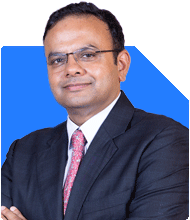I have invested in regular Mutual fund they are HDFC MID CAP OPPORTUNITY FUND Regular Growth Invested-2.91L Portfolio-11.36L XIRR-22%, Franklin India smaller companies Investment-2.15L,Portfolio-8.15L,XIRR-21%,Aditya Birla Sunlife frontline Equity Fund Investment-2.15, Portfolio-5.76L,XIRR-15%,Mira Asset Large & mid Cap Investment-1.31L Portfolio-3.73L,XIRR-21% & ICIC PRUDENTIAL ELSS Tax saver fund Investment-1.50L, Portfolio-4.24L,XIRR-15%. I have stoped all above investment.
After understanding mutual fund I have started my own and getting XIRR-24% in Mirea Asset ELSS& 30%,Axis Small cap.
Pls suggest may I switch to direct and what is better way to grow my regular Mutual funds.
Ans: You've made significant strides in your investment journey, achieving good returns. Your investments in regular mutual funds have delivered an XIRR between 15% to 22%, which is commendable. This indicates that your fund selection strategy has worked well.
The XIRR of 22% in HDFC Mid Cap and 21% in Franklin Smaller Companies shows a strong performance in mid and small-cap funds.
Aditya Birla Sunlife Frontline Equity and ICICI Prudential ELSS are more conservative, delivering around 15% returns, which are still decent, given the nature of large-cap and tax-saving funds.
The Mirae Asset Large & Mid Cap fund is balanced and performing well, with an XIRR of 21%.
Shifting from regular funds to direct funds is a natural thought, especially when you see higher returns in some of your self-selected investments. Let’s discuss this in detail.
Regular vs Direct Funds: Advantages of Staying in Regular Funds
It’s tempting to switch to direct mutual funds as they offer lower expense ratios, which can lead to slightly higher returns. However, you must weigh the pros and cons carefully.
Benefits of Regular Funds
Professional Guidance: Regular funds come with the support of an MFD (Mutual Fund Distributor) with CFP credentials. This ensures professional management of your portfolio, aligning your investments with long-term goals like retirement, education, or other life events.
Rebalancing Advice: A certified financial planner can provide valuable input on rebalancing your portfolio. They help ensure you don't get overexposed to high-risk sectors or underperforming funds.
Tax Efficiency: CFPs can offer advice on the tax implications of redeeming your funds, ensuring you don’t end up paying unnecessary taxes.
Behavioral Support: It is easy to get swayed by market volatility or make emotional decisions. With a CFP, you get disciplined investing and objective advice to prevent such pitfalls.
Drawbacks of Direct Funds
Self-Management: You must monitor and manage your investments yourself. This requires constant attention to market trends and portfolio performance.
Tax Complications: Managing tax efficiency and understanding the implications of every redemption becomes your responsibility.
Time-Consuming: If you are handling everything yourself, you may need to spend hours tracking the market and researching funds, which might be difficult considering your work or personal commitments.
Hidden Costs: While direct funds may have lower expense ratios, you could end up losing out due to lack of expert advice. Missed opportunities for rebalancing, avoiding taxes, or market corrections can cost you more than the 0.5%-1% saved on expenses.
Conclusion on Switching to Direct Funds
It’s clear that while direct funds may appear more cost-effective, the added value of professional advice and financial planning with regular funds can outweigh the small cost differences. The disciplined and guided approach will help you achieve higher returns over time and reduce risks from market volatility.
Enhancing Your Regular Mutual Fund Portfolio
Since you've already stopped investing in these funds, let's explore how you can grow your portfolio.
Review Existing Investments
Mid and Small-Cap Funds: These have done well for you with an XIRR of over 20%. Consider keeping your mid-cap and small-cap exposure intact, but periodically review fund performance.
Large-Cap and ELSS Funds: While large-cap funds like Aditya Birla Sunlife Frontline have delivered lower returns, they are stable. ELSS funds have given decent tax-saving benefits alongside reasonable returns. You might want to continue holding these, but avoid adding fresh investments into underperforming funds.
Asset Allocation Strategy
A well-diversified portfolio can balance risks and rewards. Here's how you can improve your asset allocation:
Increase Small-Cap and Mid-Cap Allocation: Given your experience, you may want to increase your exposure to mid-cap and small-cap funds. These funds provide high-growth potential, but with increased volatility. Allocating 30-40% of your equity investments to this sector can help capture growth opportunities over the long term.
Balance with Large-Cap and Multi-Cap Funds: Continue with a moderate allocation to large-cap and multi-cap funds to provide stability. These funds offer less volatility, especially in a turbulent market. A 20-30% allocation in these funds is recommended for steady long-term growth.
Add Hybrid Funds for Stability: Hybrid funds can balance risk and return by investing in both equity and debt. Consider adding balanced hybrid funds to smooth out market volatility, especially as markets fluctuate.
Tax Efficiency and Strategic Withdrawals
You must also consider the tax implications of your investments:
Capital Gains on Equity Funds: Long-term capital gains (LTCG) above Rs 1.25 lakh are taxed at 12.5%. Short-term capital gains are taxed at 20%. Plan withdrawals strategically to optimize tax impact. Avoid selling large chunks that result in high taxes.
Tax-Saving ELSS: Keep using ELSS funds for tax-saving purposes. If you hold them for the mandatory lock-in period of three years, you will also avoid short-term capital gains tax.
Rebalancing Your Portfolio
You’ve done well with your regular mutual funds, but rebalancing is key. Consider the following:
Periodic Reviews: Regularly review the performance of your funds with the help of a CFP. If a fund is underperforming for a prolonged period, it might be time to switch.
Lock-in Strategy: Don’t be hasty in exiting funds that are temporarily underperforming. Many funds go through rough phases, but long-term trends are more important than short-term hiccups.
Partial Redemption: If a fund is overexposed or giving high returns, consider redeeming partially to lock in profits. Reinvest those profits in new opportunities.
Investing in Tax Saver ELSS Funds
You've seen great results from the Mirae Asset ELSS with 24% XIRR, and the Axis Small Cap with 30% XIRR. These numbers indicate that your choice of funds is excellent.
Continue Investing in ELSS: These tax-saving funds are effective in not only reducing your tax liability but also generating strong returns. They have a three-year lock-in, which encourages disciplined long-term investing.
Small-Cap Focus: You have already tasted success with small-cap funds like Axis Small Cap. Consider increasing your small-cap allocation. But remember that small-cap investments are high risk, high reward. Avoid putting more than 30% of your total portfolio into small caps.
Systematic Withdrawal and Fresh Investments
Switch Gradually: If you decide to move to direct funds (though I recommend staying in regular funds), switch gradually. A phased approach minimizes the impact of market fluctuations. Consider setting up a systematic withdrawal plan (SWP) to redeem slowly and avoid large tax liabilities.
Fresh Investments: Any fresh investments should be directed towards funds that align with your long-term goals. Avoid adding more to underperforming funds.
Final Insights
You've shown an impressive understanding of the market and mutual funds. The transition from regular to direct funds might seem tempting but comes with added responsibilities and risks. I suggest you stay with regular funds under the guidance of a Certified Financial Planner.
Review and rebalance your portfolio regularly to keep it aligned with your financial goals. Keep a balance between high-growth small-cap funds and stable large-cap and multi-cap funds for long-term stability.
Use ELSS funds for tax-saving purposes and maintain tax efficiency in your investment strategy.
Keep a diversified portfolio that balances growth potential with risk management. Consider hybrid funds or balanced options for smoother returns.
Best Regards,
K. Ramalingam, MBA, CFP,
Chief Financial Planner,
www.holisticinvestment.in
https://www.youtube.com/@HolisticInvestment





























